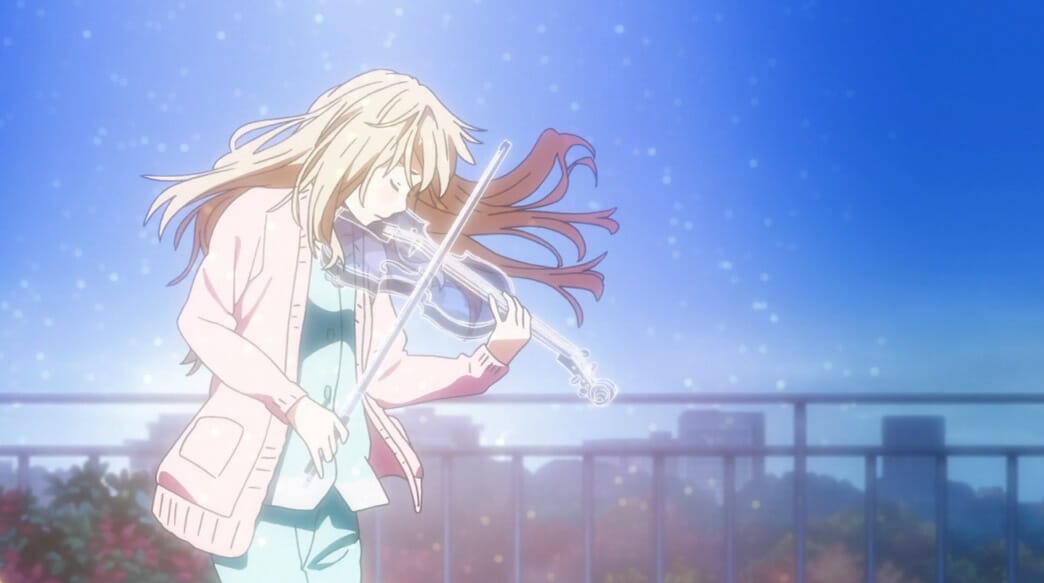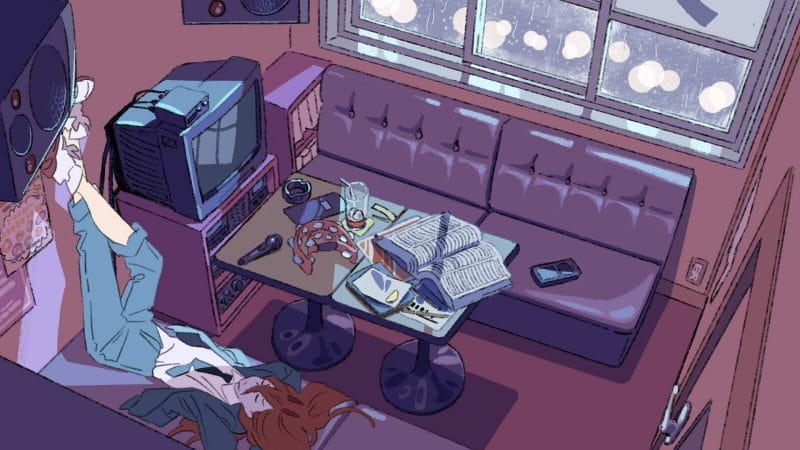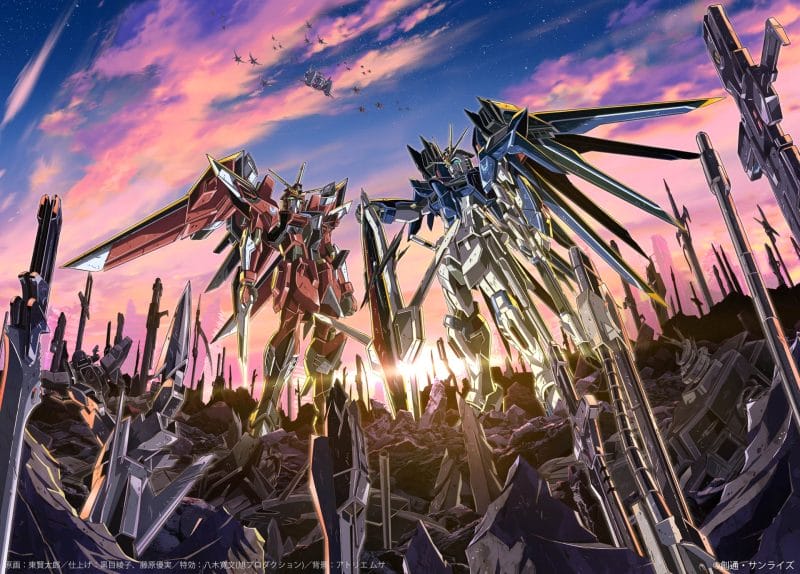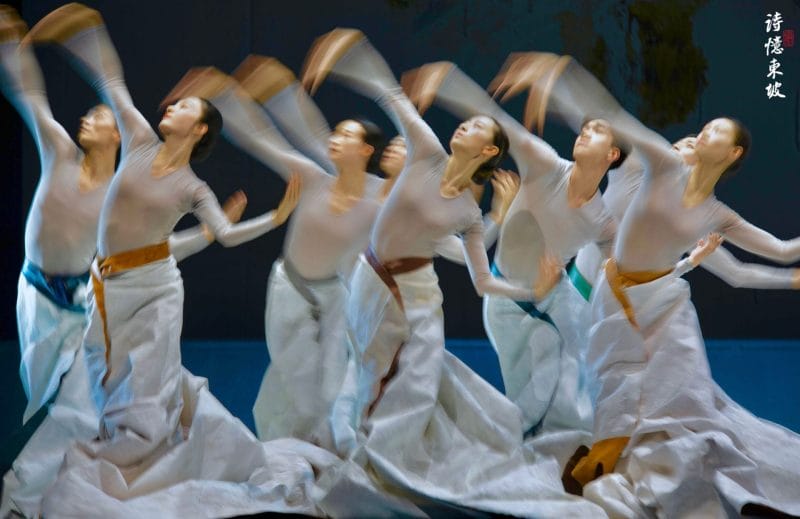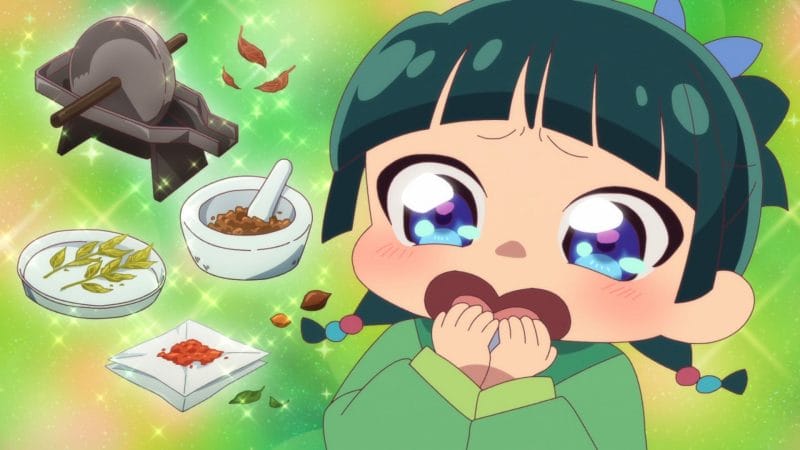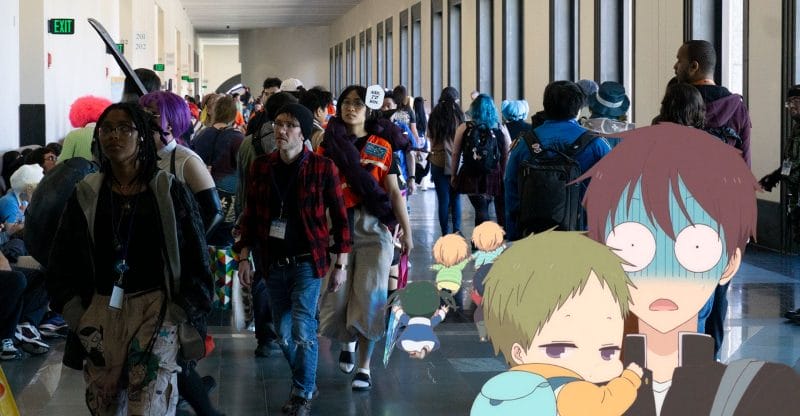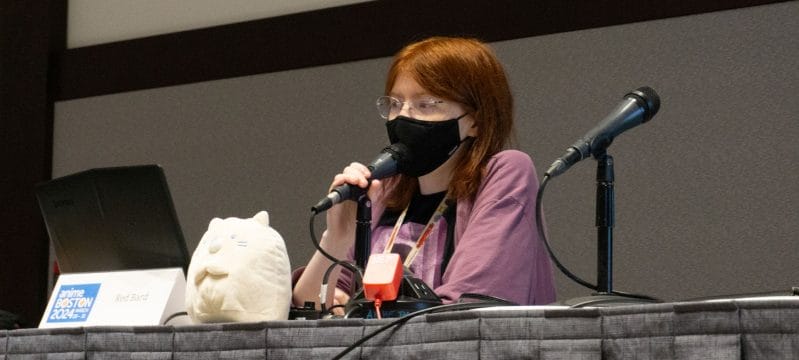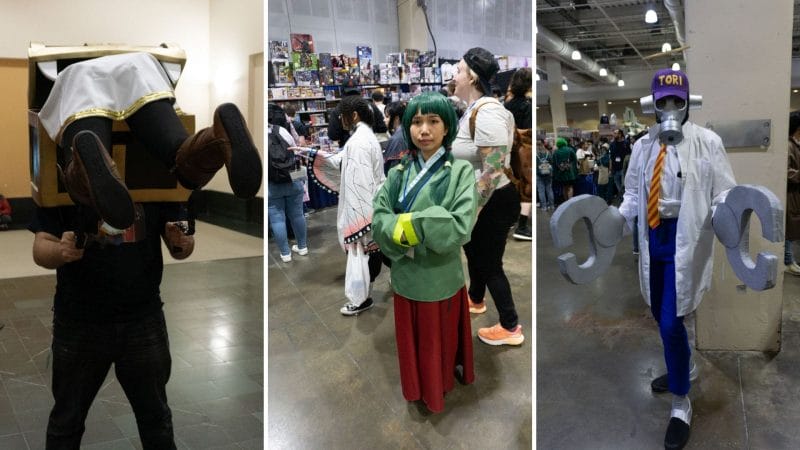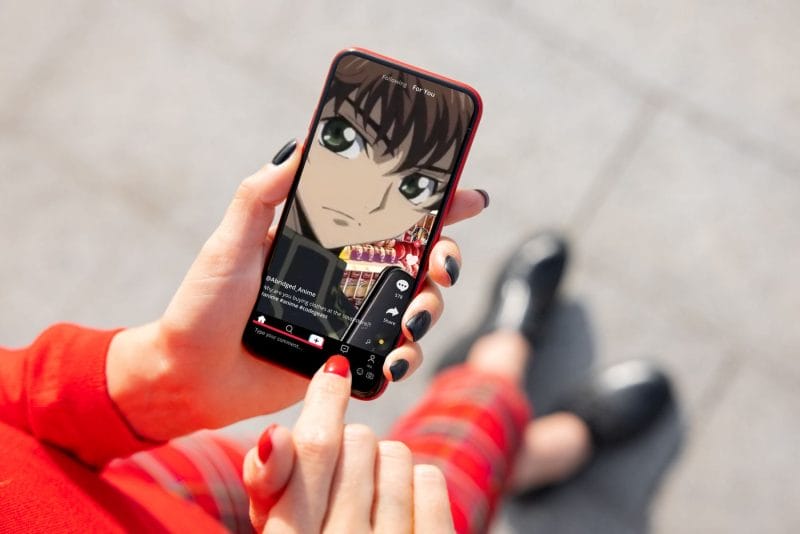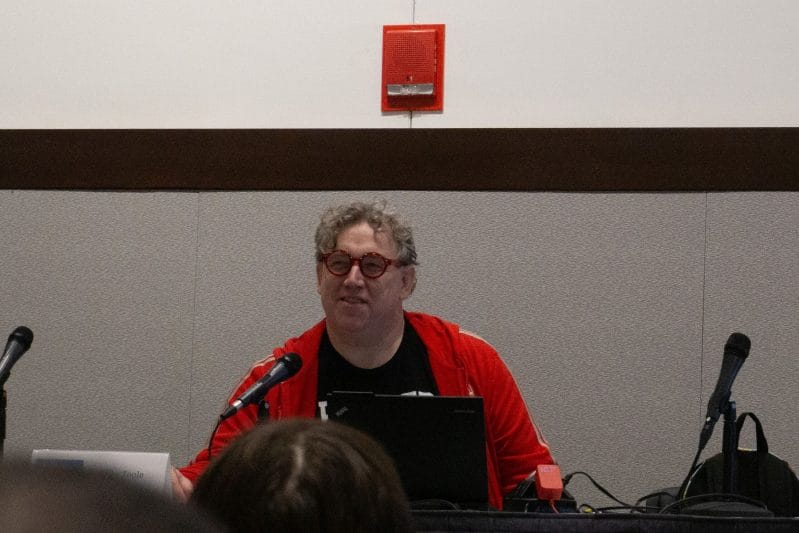The mournful vibration of a violin. The lonely notes from a piano. A harmonious swell as the two come together. Deafening silence, a sudden rise in tempo. Feelings that something isn’t right, only to have the music crash upon you in a tremendously heartbreaking, absolutely gut-wrenching panic. Every hair on your body stands up on end. Breathless. You don’t know what’s happening, but you know nothing will be the same. And when it ends, all that remains is a sadness you can’t help but want to feel again.
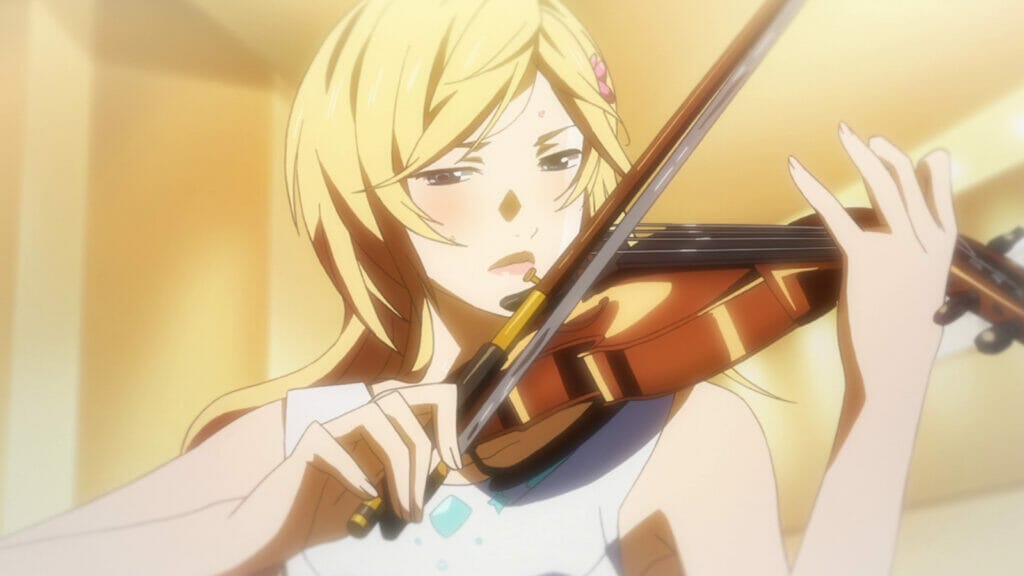
Welcome to the world of anime music, where just a few notes can forever change how you listen to music. Where a song called “Krone” can bring you to tears for no definable reason, and the simple phrase “three, two, one, let’s jam,” defines a generation of viewers.
It’s a place where only two instruments—a piano and violin— can create such a beautiful image of abject joy and agony that the very mention of the name Your Lie In April (Shigatsu wa Kimi no Uso) elicits an immediate reaction from anyone who has seen or even heard about it. Anime music is not just pieces to listen to, it becomes something to experience. We get lost worlds of beautiful colors, unique animation styles and diverse characters brought together by the music surrounding them.
Say words like “Asterisk,” “Unravel,” “ByeBye,” “Red Swan,” and “History Maker” to an anime fan, and most will immediately identify the show associated with it. These melodies are so ingrained, that, much like the themes from Friends or Star Trek, we don’t even need to think to recognize them.
What keeps us coming back for more, anticipating a new show or season’s theme songs? Why do we feel empowered by, say, the bagpipes and drums of Yasuharu Takanashi’s “Fairy Tail Main Theme?”
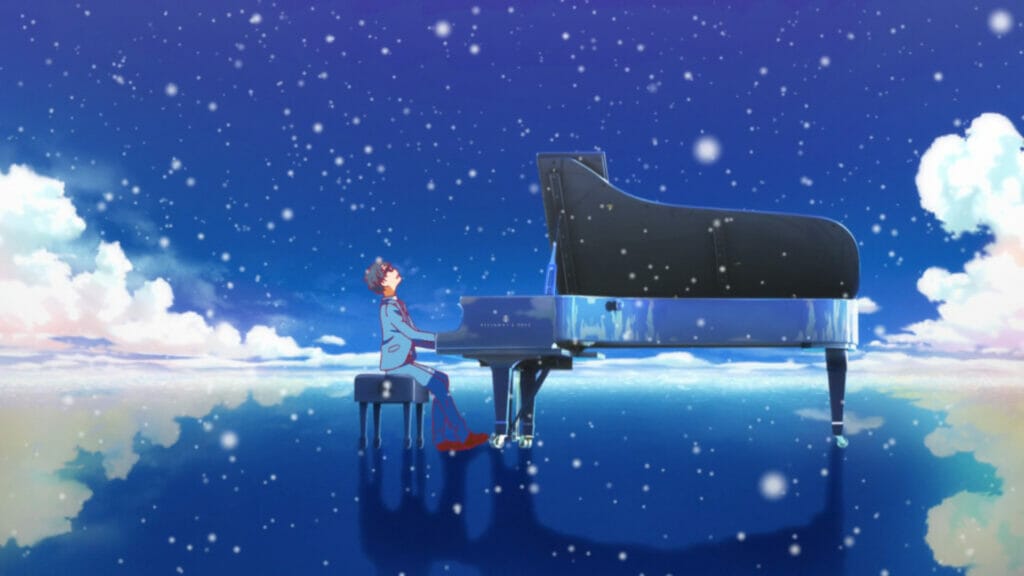
I have listened to anime music for more than a decade. It has been my study companion during college, the melodies I put on to relax, the songs I sing to my toddler. These songs inspired me to weave my own worlds, to learn new languages and explore completely different genres of entertainment. Music, in general, is one of my greatest passions, but anime music stands above all else. Many others feel the same way.
But, why?
The answer is complex, if we break down music’s effects scientifically. There are theories about psychology and the release of dopamine, adrenaline and other chemicals in our body. There are possible connections to how our brain processes sound.
But, if we want to get down to the basics, we love anime music because it makes us feel. The ability to listen to something, interpret it, and let it affect us emotionally is a big part of what makes us human.
I first discovered anime in the ‘90s, through Sailor Moon. To this day, I remember hearing the English theme song, and being filled with a sense of hope and excitement. As an introverted kid, I felt that, if a clumsy girl could save the world and have friends, so could I.
Years later, I would rediscover anime through Bleach. Again, it was the opening song “Asterisk” that immediately caught my attention. The strong, chaotic tones within the piece gave off a fun energy, underscored by a sense of urgency, which drew me into the series.
To put it simply, a great anime will have a good score that moves you.
Harrison, a musician from Florida agrees, adding “I think a good, really moving score can get me to feel any sort of emotion.”
Jenica Kness, another anime fan from Oregon, feels empowered when she hears Attack on Titan’s soundtrack. “Listening to its score- it feels cinematic,” she comments. “Like, I’m more emotionally involved than other animated shows. I feel a kind of patriotism and pride when I hear it.”
“[The] opening theme for Yuri on Ice – History Maker – and ending theme for Blood Blockade Battlefront – ‘Sugar Song to Bitter Step’ are two of my favorites,” notes Ginger Hartman-Jones, a long time anime fan from Arizona, who adds “though I do have a lot more that I really like […], I feel uplifted, inspired and happy whenever I hear them.”
For my husband, Charlie Crosier, “Tank!” from Cowboy Bebop, with its first hints of smokey jazz, immediately captured his imagination before he saw an episode. “It’s what that show is all about, being kinda edgy but still cool. It’s what made Spike’s death so painful, knowing his laidback character was gone,” he remembers.

“Krone” from Guilty Crown, mentioned at the outset, comes to mind when I think about emotional connections and the feelings a single piece can invoke. From that feeling of rising hope to the dramatic and heartbreaking climax, the piece is a draining roller-coaster ride.
“There are all sorts of emotions that can be portrayed through sounds,” says Ryan P, from Canada. “You know when Clannad is about to get sad when the piano kicks in. You know Naruto is going to kick some ass when his theme comes on. Anticipation is probably the term I’d use as an umbrella here.”
Alek Coble, an anime fan from New Hampshire, describes it on a more emotional level, explaining, “[W]hen you’re just listening to music, maybe late at night, and the song finishes playing. There is often a brief moment of electric noise that you hear before the track swaps or the audio ends that, depending on the song, can leave me in a trance. It defies genre, and it can be both bliss and agony. I look for songs that can leave me feeling that.”

In the hands of a master composer, a score can pave emotional inroads that remain even years later. Masaru Yokoyama is one such master, whose scores for works like Your Lie In April, Fruits Basket (2019), and Mobile Suit Gundam: Iron-Blooded Orphans, have had an indelible impact on listeners around the world. Yokoyama’s work was mentioned in several interviews, making the impact of his music unmistakably clear.
“The song, “Spring Will Come When the Snow Melts Away” [from Fruits Basket 2019] always fills me with a serene sort of sadness. A sort of, coming to terms with sorrow,” Davis explains. “When I hear it, it gives me strength and it sounds so lovely. The amount of care that goes into scoring the show with regards to playing just the right songs for just the right emotion is amazing.”
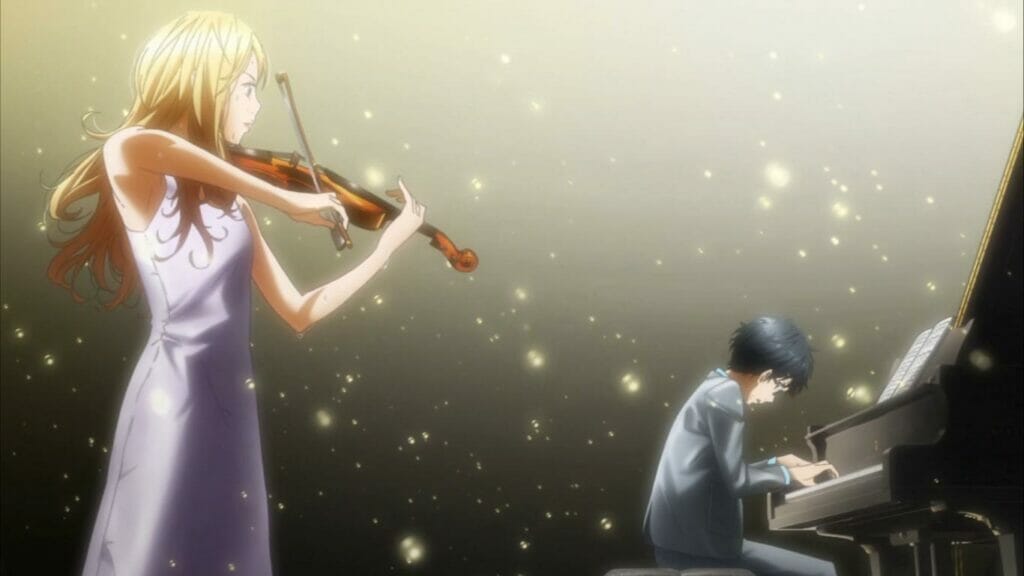
Who can forget the beautifully crafted music that accompanied Kaori and Kōsei’s interactions throughout Your Lie In April? What makes composers like Yokoyama memorable? As an anime fan, when the opportunity to talk to him about his music was presented, I was delighted to ask. Through our discussion, it became clear that such qualities stem from how he views his own music.
As a composer from the age of ten, Yokoyama “is able to create the world. If my score is not good, the project’s world won’t become alive/vivid. This is just my opinion, but I always feel that the project is like a picture. The screenwriter draws a line. The set/art designer constructs the material. I, the composer, add the color. At last, the Director/Producer packs everything together. I mean, creating an animation is a comprehensive art. Everyone can’t create it if they are alone.”
This becomes beauty and heartbreak painted clearly in Your Lie In April. The impact of the anime was felt not only by the viewers but by Yokoyama himself. “[Your Lie In April] has completely changed my life,” he says. “In that program, I was able to establish/find my music style that symbolizes brightness, transparency, and clearness. I was able to gain confidence in my music, and that’s not only due to the quality of my composition.”
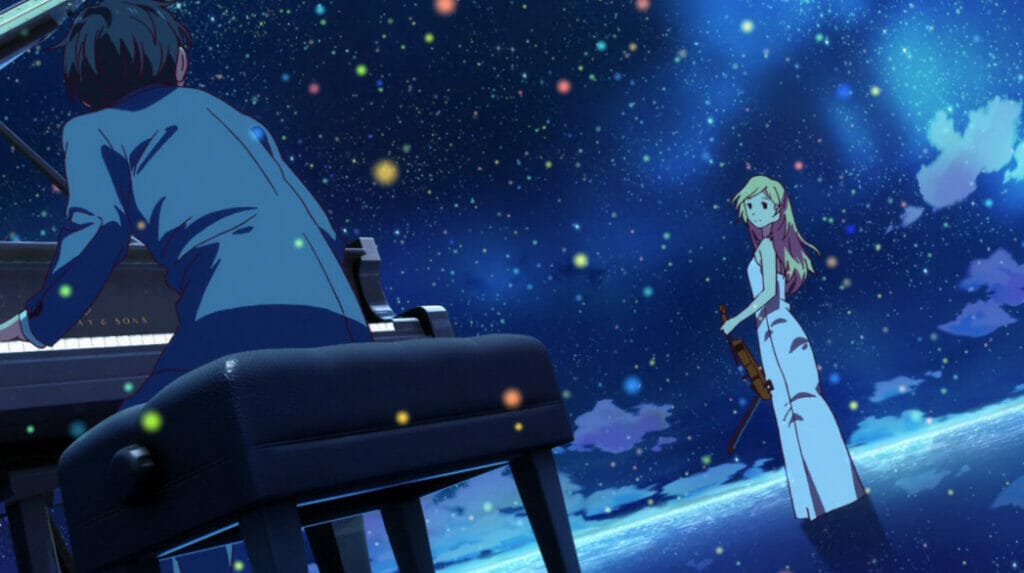
Such works are never the work of just one person, though. They are the result of efforts from the entire staff, as Yokoyama elaborates. “The original work of [Your Lie In April] was very impressive, and it triggered all the staff’s exceptional abilities, including myself. As the overall quality of this program became very high, the music and picture made a synergistic effect,” he recalls.
It’s this synergy that allows audiences to truly connect with the characters on-screen—through the music to emotional sustainability of all entertainment, let alone just anime. Without music, any form of entertainment becomes little more than a silent, sterile journey.
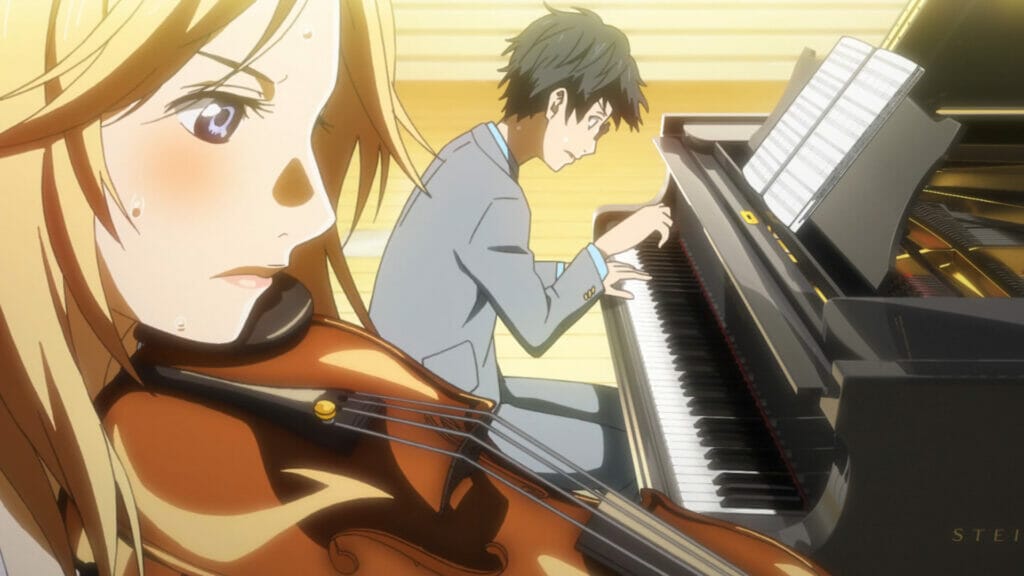
Yokoyama composed his most iconic works with this in mind. “All the emotional pieces were influenced by Kaori’s emotion,” he says. “There’s a scene where Kaori asks Kosei to play together under the beautiful cherry blossom. The scene was too beautiful, and I lost my words when I saw that scene. I titled the song, “Yujin A kun wo Watashi no Bansousha ni Ninmei Shimasu” which means “I’m appointing my friend ‘A’ as my accompanist”. The meaning behind it will be clear if you watch the story until the end. [The viewer should] have in mind […] Kaori’s inner thoughts at that moment.”
Music is a universal language. It draws us together and binds us emotionally. Even during the past year and a half of separation, music lovers and anime fans have been able to come together to enjoy watch parties among friends, and live-streamed concerts as a community. It has helped many of us combat loneliness,and given us hope as something to look forward to. Now, as the world reopens, we see music as a way to reconnect and rejuvenate, a legacy to leave for generations to come.
“We have to renew the era. I’m trying to find a new method little by little. I believe that these baby steps in renewing the music will not only change the animation music, but influence the overall animation itself, resulting [in] an update of the ‘culture,’” notes Yokoyama.
Regardless of where our paths lead, we will always have the emotional scores and thrilling rides that are anime music.


